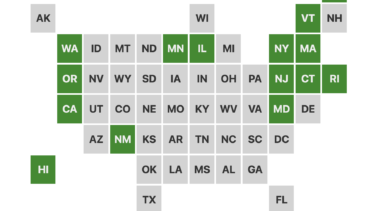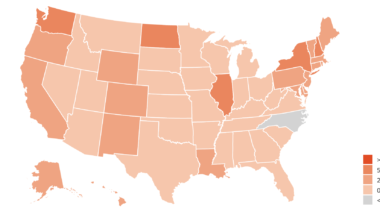Jordan Campbell is a quantitative analyst at Reason Foundation.
Prior to joining Reason, Campbell worked at a marketing analytics firm building econometric models. Before starting his analytics career, he was a policy and research assistant at the Charles Koch Institute.
Campbell’s work has been published by The Press-Enterprise and the Platte Institute. His quantitative work on educational policy has been cited by The Thomas B. Fordham Institute.
Recently, Campbell appeared on a panel entitled “Don’t Fence Me In: Texans Crossing School Boundaries” sponsored by the Texas Public Policy Foundation.
Campbell received his bachelor’s degree from Portland State University and a master’s degree in quantitative economics from California Lutheran University.
He lives with his wife in Los Angeles, California.
-
The effect of menthol bans on cigarette sales: Evidence from Massachusetts
Massachusetts' flavored tobacco ban primarily sent buyers to other states and illicit markets.
-
The mechanics of ESG-driven divestment, engagement and proxy voting
It is inappropriate for public pension systems to engage in political, non-pecuniary investment activities, regardless of whether it occurs through divestment or shareholder proposals.
-
Scrutinizing high ESG fees, greenwashing and the politicization of public pension funds
ESG-focused investing is drawing criticism, even from some supporters, due to overstated claims and high fees.
-
The public pension systems signing on to politicized ESG investment efforts
State and local public pension systems that have signed on to the Ceres Investor Network on Climate Risk and Sustainability and Climate Action 100+.
-
K-12 Education Spending Spotlight: An in-depth look at school finance data and trends
Reason Foundation’s new K-12 Education Spending Spotlight provides critical insight into key school finance trends across the country.
-
California’s public schools are losing kids while getting more money
Even though there are fewer kids in public schools, the state’s education spending continues to go up.
-
The difficulties of assigning ESG ratings
The problems with public pension systems and private companies trying to create environmental, social, and corporate governance (ESG) risk ratings.
-
Despite historic 2021 returns, many public pension plans are wisely preparing for lower investment returns
Public pension plans also need to resist the temptation to use last year's one-off, one-year investment return windfalls to fund new benefits like higher cost-of-living adjustments.
-
Governments increased their use of pension obligation bonds in 2021
In September, pension obligation bonds rated by S&P in 2021 totaled $6.3 billion—compared to $3.0 billion in 2020.









